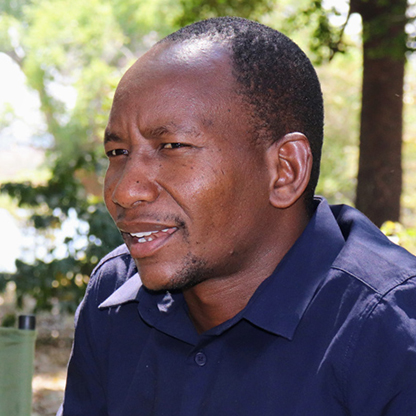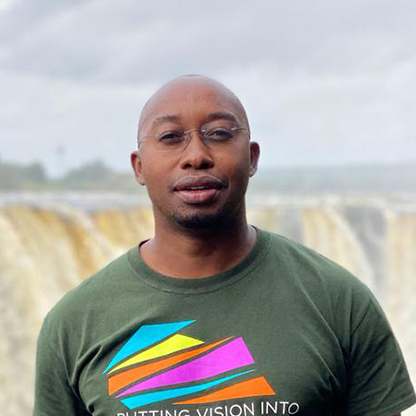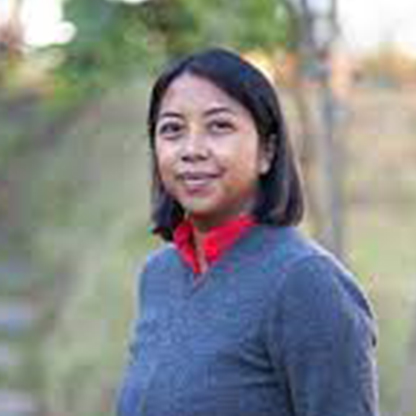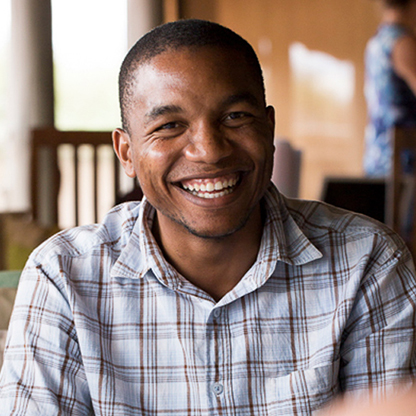A rising generation of new African conservation leaders are creating innovative solutions to conservation challenges across the region. They are developing new people-centric organisations that will determine the future of the continent’s most critically important natural landscapes.

Daniel Sopia – As the CEO of the Maasai Mara Wildlife Conservancies Association (MMWCA), Sopia has been integral in the evolution of communityled conservation efforts in the Maasai Mara, one of Kenya’s most vital ecosystems. MMWCA is the umbrella body representing the landowners who have pulled together their individual parcels to form big, contiguous areas for wildlife and tourism now known as group conservancies, that protect the land surrounding the Maasai Mara National Reserve.


Paine Makko – Ujamaa Community Resource Team (UCRT) is Tanzania’s top land rights group that has helped secure more than one million hectares of community land, empowering communities to own, manage, and beneft from it. As the Executive Director, Paine combines her experience as a pastoralist and background in development to create solutions that work for both people and nature through UCRT.


Maxi Pia-Louis – Maxi is the Director of the Namibian Association of CBNRM Support Organisations (NACSO), and has greatly contributed to Namibia’s success in community conservation. She coordinates NACSO’s three thematic working groups and ensures collaboration and learning between its nine non-proft member organisations. She also facilitates communication and partnerships between NACSO, the government, and other partners.


Moreangels Mbizah – Moreangels is the Founder and Executive Director of Wildlife Conservation Action, Zimbabwe, an organisation that aims to build the capacity of local communities to protect and coexist with wildlife. A conservation biologist by training, Moreangels has worked in wildlife conservation for more than a decade, focusing on the preservation of large carnivores, such as lions and African wild dogs, as well as human-wildlife coexistence.


José Monteiro – Jose is an experienced Forest Ecologist skilled in land-use practices and management, including natural resources governance for development. His particular area of focus is communities living in rural Mozambique. As the Coordinator, José has played a critical role in facilitating the establishment of the Community Based Natural Resources Management Network in Mozambique (R-GCRN), aiming to empower communities to build robust governance systems to improve their decision-making over land use and management of their natural resources.


Tiana Andriamanana – Tiana is the Executive Director of Fanamby, an organisation that works across a portfolio of half a dozen protected areas spanning more than 500,000 hectares of Madagascar’s diverse forests and ecosystems. Madagascar is one of the most critical countries globally, with most of its plants, mammals, and reptiles found nowhere else on earth. Tiana’s experience in business engagement has shaped her approach to natural capital management in Madagascar.


Thandiwe Mweetwa – Thandiwe Mweetwa is a Project Manager at Zambia Carnivore Programme. She is a globally-renowned ecologist and educator whose work focuses on carnivore conservation on human-impacted landscapes in eastern Zambia. Thandiwe is a champion of community-centric conservation, including finding innovative and sustainable ways to promote human-lion coexistence.


Sam Shaba – Honeyguide works to develop ecologically viable and fnancially sustainable Wildlife Management Areas in Tanzania. They accomplish this by advancing the business side of community conservation. As a Program Manager, Sam is integral to Honeyguide’s leadership, helping steer the team’s strategy, including inventive thinking in how technology and businesses can support conservation outcomes.







